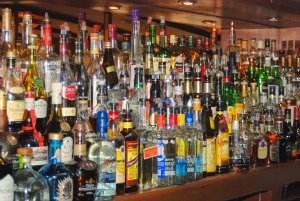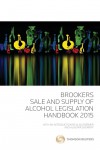Sale and Supply of Alcohol Act 2012: What changes does it bring?
 In December 2012 Parliament enacted the Sale and Supply of Alcohol Act 2012 to put in place a new system of control over the sale and supply of alcohol and generally to reform the law relating to the sale, supply and consumption of alcohol. The emphasis of the new Act is to endeavour to ensure that the sale, supply and consumption of alcohol should be undertaken safely and responsibly and the harm caused by the excessive or inappropriate consumption of alcohol should be minimised.
In December 2012 Parliament enacted the Sale and Supply of Alcohol Act 2012 to put in place a new system of control over the sale and supply of alcohol and generally to reform the law relating to the sale, supply and consumption of alcohol. The emphasis of the new Act is to endeavour to ensure that the sale, supply and consumption of alcohol should be undertaken safely and responsibly and the harm caused by the excessive or inappropriate consumption of alcohol should be minimised.
Some (administrative) parts of the 2012 Act came into force in December 2012. Other parts commence in June 2013 and the balance takes effect from December 2013.
2013 renewals
Any licensee facing a renewal in 2013 needs to grapple with the new legislation. There are four scenarios which apply.
- The first is for those renewals that were filed before the 18th of December 2012 and are resolved before June 2013. They will continue to be dealt with under the 1989 Act as if the 2012 Act hadn't been passed.
- A second category are those licences where application for renewal is made between December 2012 and June 2013. Those renewals will either be for 12 months or will be dealt with as if some specified provisions in the 2012 Act applied.
- Those applications filed after June 2013 will be dealt with under the 1989 Act but with a number of new provisions in the 2012 Act substituted for the previous provisions in the 1989 Act.
- Finally from December 2013 all renewals will be disposed of in accordance with all of the new provisions of the 2012 Act.
New provisions
There are new provisions under the 2012 Act that were not present in the 1989 Act. For example, on-licence holders are likely to find a one way door policy imposed as a condition on their licence particularly if they are operating a hotel or tavern bar. Hours for licences are likely to be affected by local alcohol policies and the 2012 Act. The 2012 Act includes default national maximum trading hours which will apply unless there is in force a local alcohol policy which has different maximum trading hours than the default national maximum trading hours. The default national maximum trading hours for on-licences and club licences will be 8.00am on any day to 4.00am the next day. The default national maximum trading hours for off-licences will be between 7.00am and 11.00pm on any day. So holders of licences which currently have 24/7 hours must ensure that their local territorial authority adopts a local alcohol policy which incorporates 24/7 hours if they wish to avoid losing the right to trade 24/7 to the default maximums. Even then, it is anticipated that there may be a period between the commencement of the 2012 Act (December 2013) and the commencement of the relevant local alcohol policy when the default hours supercede the 24/7 entitlement. In addition, the new legislation places a level playing field on all on-licences in relation to the restrictions on the sale and supply of alcohol on ANZAC day morning, Good Friday, Easter Sunday, and Christmas Day.
Off-licences - tightening of criteria
The criteria for off-licences have been tightened in the 2012 Act. The kinds of premises for which off-licences may be issued are now more restrictive. In determining whether or not a premises are a grocery store, new definitions of "food product" and "grocery store" and "ready-to-eat prepared food" and "snack food" have all been included in the legislation. In addition, shops within shops, and convenience stores, are precluded from obtaining off-licences, along with petrol stations, garages, dairies and conveyances.
Community consultation enhancements
Many local councils have already embarked on informal consultation with citizens on what may or may not be in a local alcohol policy eventually under the 2012 Act. Members of communities who wish to halt the proliferation of alcohol licences, and indeed reduce the number of licences, and influence where licences might be located, and persuade their councils to impose other trading conditions and restrictions on alcohol licences, need to be aware of the consultation processes in their community with their council on local alcohol policy formulation. Many councils have had policies relating to liquor licences under the 1989 Act embodying varying conditions and restrictions. The ability of communities to influence alcohol licences with regard to amenities of localities in various communities has been specifically enhanced and added into the relevant considerations under the 2012 Act.
Territorial authorities - possible changes
It is not compulsory for territorial authorities to have local alcohol policies. However, we believe that most territorial authorities will welcome the opportunity to complement the existing provisions of the Resource Management Act on land use by making use of the empowering provisions in the Sale and Supply of Alcohol Act 2012 in relation to alcohol licences. It is quite possible to foresee:
- quantitative licensing returning;
- a reduction in the total number of licences occurring;
- greater restriction on the location of licensed premises by reference to other facilities such as schools, churches, kindergartens, recreation grounds and parks, and the like, as existed under the 1962 Sale of Liquor Act; and
- much reduced trading hours in place.
Territorial authorities must utilise the local government special consultative procedure when formulating local alcohol policies by producing provisional policies and draft policies before adopting a final local alcohol policy. In our view, many of the major urban areas will have utilised the necessary procedures to formulate, draft, consult, and finalise local alcohol policies by December 2013 when the 2012 Act is fully in force.
Other changes for particular licence holders
There are other significant changes that will impact on particular licence holders. For example, it is likely that supermarkets and grocery stores will face restrictions on where alcohol can be displayed in their premises, and will have conditions imposed as to advertising, and point of sale information. The new legislation is intended to limit the exposure of shoppers in supermarkets and grocery stores to displays and promotions of alcohol and advertisements for alcohol. With this in mind, licensing committees in communities are likely to prescribe alcohol areas for supermarkets and grocery stores and impose single area conditions which restrict the display, promotion, and advertisement of alcohol to that part of the premises defined as the alcohol area. In particular, an alcohol area is unlikely to be at the entrance of a supermarket/grocery store or at the point/s of sale.
Article by: Alastair Sherriff, Buddle Findlay
For guidance on the changes the Sale of Supply of Alcohol Act 2012 brings read Sale and Supply of Alcohol Legislation Handbook 2015
